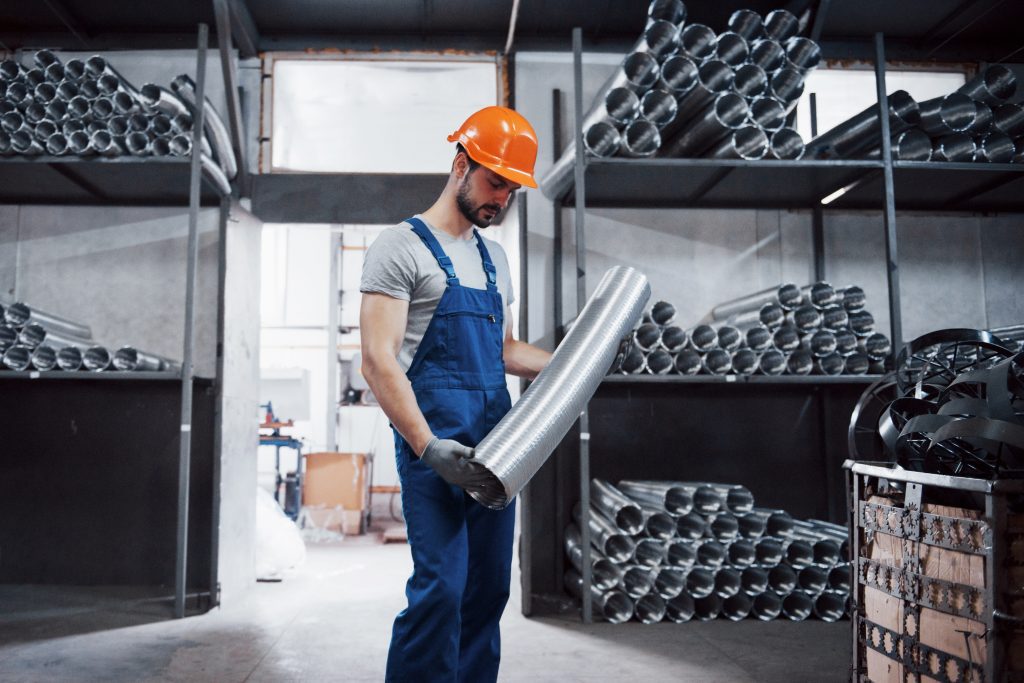Finding the right steel supplier can feel like hunting for buried treasure, especially if you’re new to steel procurement. Whether you’re a construction professional, a manufacturing engineer, or even a DIY enthusiast, the steel you source is critical to your project’s success. Quality, pricing, and timely delivery all hinge on choosing the right supplier.
The good news? You don’t have to wander through the labyrinth of steel sourcing alone. Platforms like Ayaan International have simplified the entire process, allowing you to request quotes from 300+ trusted steel suppliers across India, China, Vietnam among other countries. Within 72 hours, you’ll have access to the best options tailored to your specific needs and budget.
But before you dive into the world of steel sourcing, it’s important to understand the intricacies of choosing the right supplier. Let’s break it down!
Why choosing the right steel supplier is essential?
Selecting a steel supplier is about more than just finding a company that offers the material you need. The wrong choice can have significant impacts on your project:
- Project Integrity: High-quality steel ensures the structural integrity of your builds. Subpar materials can lead to safety risks, especially in construction projects, resulting in accidents or expensive repairs.
- Pricing Strategy: Not all steel is created equal. You want a supplier who offers competitive prices, but the lowest price doesn’t always equal the best deal. Cheap steel could lead to higher costs down the line due to defects, repairs, or rework.
- Timeliness: The timing of your steel deliveries is crucial. Delays can cause construction projects or manufacturing processes to come to a halt, leading to lost revenue and frustrated clients.
With Ayaan International, you can sidestep these issues by comparing suppliers and prices, ensuring you get both quality and value in record time without compromising your delivery deadlines.
Understanding the types of steel for your project

Before you even begin searching for suppliers, it’s crucial to have a clear understanding of what type of steel your project requires. Different projects require different types of steel, each offering varying strengths, flexibility, and durability. Here’s a breakdown of the most common types of steel products:
Structural Steel
Structural steel plays a key role in supporting large-scale infrastructure such as bridges, buildings, and other heavy-duty constructions.. It’s designed to bear heavy loads and withstand harsh environmental conditions. You’ll often find it in beams, girders, and columns. These components form the framework of construction projects and are essential for long-lasting durability.
Rebar (Reinforcing Steel)
Rebar is a steel bar that provides additional strength to concrete structures. It ensures the concrete doesn’t crack under pressure, which makes it ideal for buildings, highways, and other critical infrastructures. Reinforcing steel is indispensable in large-scale developments and infrastructure projects.
Steel Pipes
Steel pipes are widely used in both plumbing and industrial applications. These pipes are available in a variety of diameters and thicknesses, depending on their use. From oil and gas pipelines to smaller water distribution systems, pipes are an essential component in a variety of industries. Durability and resistance to corrosion are key aspects to consider when you’re selecting pipes.
Steel Plates & Sheets
Steel plates and sheets are sturdy, flat metal components commonly utilised in industries like construction, transport, and equipment manufacturing. Steel plates, in particular, are thicker and often used in heavy-duty applications such as shipbuilding, military vehicles, and large tanks. These versatile products serve multiple industries and offer strength and longevity.
Stainless Steel
While not always required for structural projects, stainless steel is known for its corrosion resistance and is often used in environments where exposure to moisture or chemicals is a concern, such as kitchens, laboratories, and the chemical processing industry. Its aesthetic appeal also makes it a popular choice in interior design and architectural features.
Understanding your exact steel requirements will help you narrow down your list of potential suppliers, ensuring that you’re reaching out to companies that specialise in the materials you need. Alternatively, you may contact us and let us help you choose the right material and deal with the hassle of contacting suppliers.

How to begin your search for reliable steel suppliers
Now that you know what you’re looking for, let’s dive into how to find the best steel suppliers near you. The search doesn’t have to be as daunting as it seems. With the right approach, you can quickly zero in on trustworthy suppliers who offer competitive prices and high-quality products.
Utilise online platforms and directories
In today’s digital age, starting your search online is one of the easiest ways to connect with steel suppliers. Platforms like Metal Movers offer a user-friendly interface where you can browse through their wide range of steel products. Instead of scouring multiple websites, you can request quotes instantly, and sit back and relax. Letting them compare prices & services and providing you with the best quotes.
Attend trade shows and expos
While online research is valuable, there’s still something to be said for meeting suppliers in person. Trade shows and expos are excellent opportunities to connect with steel suppliers face-to-face. These events bring together suppliers and buyers, giving you a chance to inspect their products, ask detailed questions, and negotiate pricing directly.
Many suppliers offer exclusive trade show deals, which can give you an edge on pricing. Plus, building a personal connection with a supplier can lead to long-term relationships, giving you access to better service in the future.
Check industry associations
Another avenue to explore is industry associations. Local and regional steel industry organizations often maintain directories of member suppliers. These suppliers typically adhere to strict quality standards and undergo regular audits to ensure they meet industry benchmarks.
Associations such as the Indian Steel Association (ISA) or the Confederation of Indian Industry (CII) often have extensive member lists that can serve as a great starting point for your search.
Use word of mouth and personal recommendations
Sometimes, the best way to find a reliable supplier is by asking around. Talk to colleagues, contractors, and engineers who have worked on similar projects. Personal recommendations can be invaluable because they come from trusted sources with firsthand experience. You’ll also get insights into the supplier’s delivery schedules, customer service, and willingness to negotiate on pricing.

Evaluating Steel Suppliers: What to Look For
Finding a supplier is only half the battle. Evaluating them to ensure they meet your needs is where the real work begins. Here are some critical factors to keep in mind when assessing potential steel suppliers.
1. Certifications and quality standards
The quality of your steel is paramount, especially in construction and manufacturing industries where safety and durability are non-negotiable. Ensure the supplier meets the following certifications:
- ISO Certification: Indicates that the supplier follows internationally recognized standards for quality management.
- ASTM Compliance: ASTM standards cover the performance and safety specifications for various types of steel.
- BIS Certification: Ensures that steel products meet Indian national quality and safety standards.
Suppliers with these certifications can be trusted to provide steel that meets both local and international quality benchmarks.
2. Range of Products
Your supplier should have a wide variety of steel products available, including various grades and sizes. Choosing a supplier, like Ayaan International with a broad selection of steel products means you can source everything in one place, no need to juggle multiple vendors.
Ayaan International partners with suppliers who are best in class, offering a broad selection of steel products, ensuring that whatever your project requires, you’ll find it in one place.
3. Customer service and support
Great customer service is essential, especially if you’re dealing with complex orders or tight deadlines. Look for a supplier who is responsive and willing to go the extra mile to meet your needs. Whether it’s adjusting delivery schedules, offering flexible payment terms, or providing technical support, a supplier who priorities customer service will make your procurement process much smoother.
4. Transparent Pricing
Comparing prices is essential, but having clear and transparent pricing matters just as much. Be wary of suppliers that offer suspiciously low prices without detailing what’s included (or excluded). Be sure to request a comprehensive cost breakdown, covering:
- Base price of the steel
- Delivery and handling fees
- Taxes and import duties
- Any additional charges for special requests (e.g., custom sizes, coatings)
At Ayaan International, you’ll receive itemised quotes from multiple suppliers, allowing you to make an informed decision without any hidden fees.
Building a strong relationship with your supplier

Once you’ve selected a supplier, it’s essential to build a solid working relationship. A good supplier relationship can lead to better deals, faster turnaround times, and more flexibility when unexpected issues arise. Here’s how to foster that relationship:
- Communicate regularly: Keep an open line of communication with your supplier. Discuss upcoming projects and any changes in your material requirements.
- Share your feedback: Offering constructive input can help suppliers refine and enhance their services. If there are areas for improvement, communicate them respectfully.
- Show appreciation: Acknowledge good service with positive reviews or personal recognition. A little appreciation goes a long way in securing long-term, mutually beneficial partnerships.
Managing your steel orders efficiently
Efficient order management is crucial for keeping projects on track and within budget. Here are some tips for staying organized and ensuring a smooth procurement process:
- Track your orders: Maintain detailed records of all orders, including specifications, quantities, and delivery dates.
- Monitor market prices: Steel prices fluctuate due to changes in global demand, raw material costs, and transportation fees. Keeping an eye on market trends can help you time your purchases strategically.
- Inspect deliveries: Upon receiving steel shipments, thoroughly inspect the materials to ensure they meet your specifications. Should any problems occur, reach out to the supplier promptly to resolve them efficiently.
Conclusion
Sourcing engineering materials doesn’t have to be a complex or stressful process. With Ayaan International, you can request quotes from over 300+ trusted steel suppliers across the world, all from the comfort of your office. Why waste time searching when you can find everything you need in one place? Kick off your sourcing journey today and simplify your steel procurement process effortlessly.
Alternatively, you can also request us to import material for you. In which case we will guide and support you to choose the best country for the same and handle the entire procurement process.












